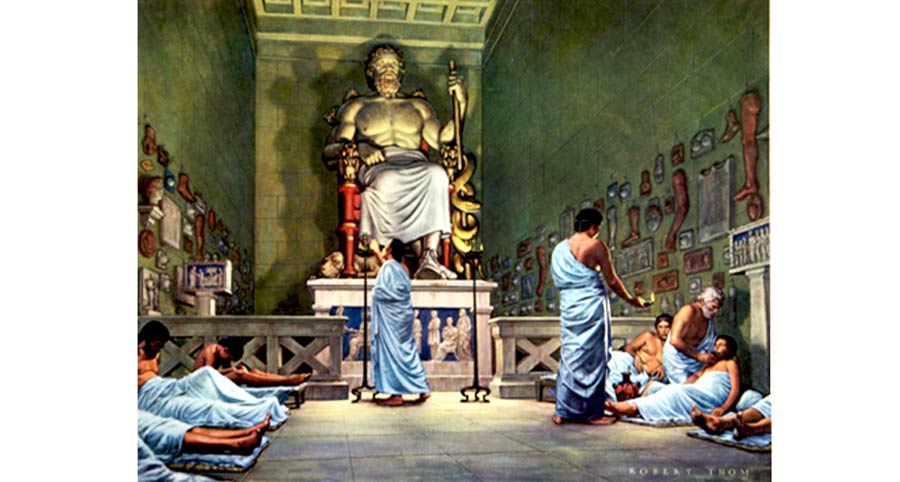Decode the Enigmatic Secrets of Ancient Greek Dream Interpretation – Unlock Their Wisdom Today

– Explore the history of dream interpretation in ancient Greece and its significance
– Identify key symbols and their meanings in ancient Greek dream interpretation
– Understand the role of dreams in ancient Greek society and self-discovery
– Learn how to incorporate ancient Greek dream analysis into modern life
Are you ready to unlock the wisdom of the gods through your dreams? Let’s begin!
Explore the history of ancient Greek dream interpretation. Discover key symbols and their meanings, delve into the role of dreams in Greek society, and learn how to apply these techniques in your own life. Are you ready to unlock ancient Greek wisdom? Join us on this unique journey.
Ancient Greece Dream Interpretation: Unlocking the Secrets of the Past through Dreams

Dreams have always been a mysterious and intriguing phenomenon, captivating humans throughout history. Ancient Greeks believed that dreams held significant meaning and purpose as they were seen as a powerful tool for unraveling the secrets of the past. These supernatural occurrences were regarded as a means through which gods communicated with mortals, offering valuable insights and warnings about their lives and futures.
A notable figure in ancient Greek dream interpretation was philosopher and mathematician Pythagoras. He saw dreams as a direct connection to the divine, providing a glimpse into the depths of the soul. Pythagoras believed that interpreting these dreams enabled individuals to gain a profound understanding of their deepest desires, fears, and concealed truths.
Another figure in ancient Greek dream interpretation was Artemidorus, a renowned dream interpreter from the 2nd century AD. Artemidorus wrote a comprehensive guide called “The Interpretation of Dreams,” in which he outlined a systematic approach to understanding dreams. He believed dreams reflected an individual’s current life circumstances and potential future outcomes. By analyzing dream symbols and events, Artemidorus believed one could make informed decisions and navigate life’s challenges effectively.
The ancient Greeks believed dreams offered guidance and advice on various aspects of life, including relationships, health, and warfare. They sought the counsel of oneirocritics, skilled at deciphering hidden meanings. These interpreters analyzed dream symbols, emotions, and themes to provide insights and predictions for the dreamer.
In ancient Greece, dreams were more than just signs of an individual’s subconscious. They were sacred communications from the gods, providing access to collective knowledge and wisdom. Today, the tradition of dream interpretation continues, drawing inspiration from the ancient Greeks’ understanding. By studying their methods, we can unlock the secrets of the past and understand ourselves and our world through dreams.
How to Remember Your Dreams

One way to unlock the insightful messages and symbols in your dreams is by remembering them. Our dreams hold important subconscious information to guide us in everyday life. Here are tips to assist in dream recall:
1. Establish a bedtime routine: Creating a consistent routine signals to your subconscious that you prioritize and aim to recall dreams. Activities such as journaling, meditating, or engaging in relaxing practices before sleep can work well.
2. Keep a dream journal: Have paper and a pen nearby, and upon waking, jot down any details, emotions, or images that come to mind. Even if they seem unclear at the moment, recording them helps trigger subsequent memories and associations.
Create a sleep-friendly environment: Make sure your sleep area is cool, quiet, and comfortable. Avoid excessive noise, bright lights, or distractions that might hinder your dream recall.
Set an intention: Before going to sleep, intend to remember your dreams. Simply telling yourself, “I will remember my dreams tonight,” can help prepare your mind to store and recall dream information.
Practice active recall: Upon waking up, spend a few minutes in bed actively recalling any dream fragments. Concentrating on the details can act as a mental warm-up to activate your ability to recall.
Table.
Reviewing Text and Eliminating Redundancies
Title: The Importance of Keyword Optimization for Editorial Refinement
Introduction:
Keyword optimization plays a crucial role in refining editorial content. It enhances readability and reinforces the overall impact of written material. Understanding the significance of keyword optimization will help writers create concise yet impactful content, resonating effectively with readers.
Benefits of Keyword Optimization:
1. Improved Readability:
Keyword optimization reduces unnecessary repetition and simplifies content, making it easier to understand. It emphasizes relevant information without drowning it in redundancies.
2. Enhanced Clarity:
Keyword optimization brings clarity to written content by eliminating redundant words or phrases. It ensures that ideas are expressed succinctly, avoiding any unnecessary details that can detract from the main points.
3. Increased Impact:
Through keyword optimization, the impact of the written piece becomes even more significant. It enables writers to communicate their message clearly and concisely, creating a memorable impression on readers.
4. Streamlined Writing Process:
By eliminating redundant language, keyword optimization streamlines the writing process. It allows writers to focus on delivering the main points effectively, without needless repetition and wordy passages.
Conclusion:
Keyword optimization is invaluable when it comes to refining and enhancing editorial content. Its benefits of improved readability, enhanced clarity, increased impact, and streamlined writing process make it an essential technique for any writer. Incorporating keyword optimization in writing helps to create concise and impactful content, ultimately captivating readers and leaving a lasting impression.






